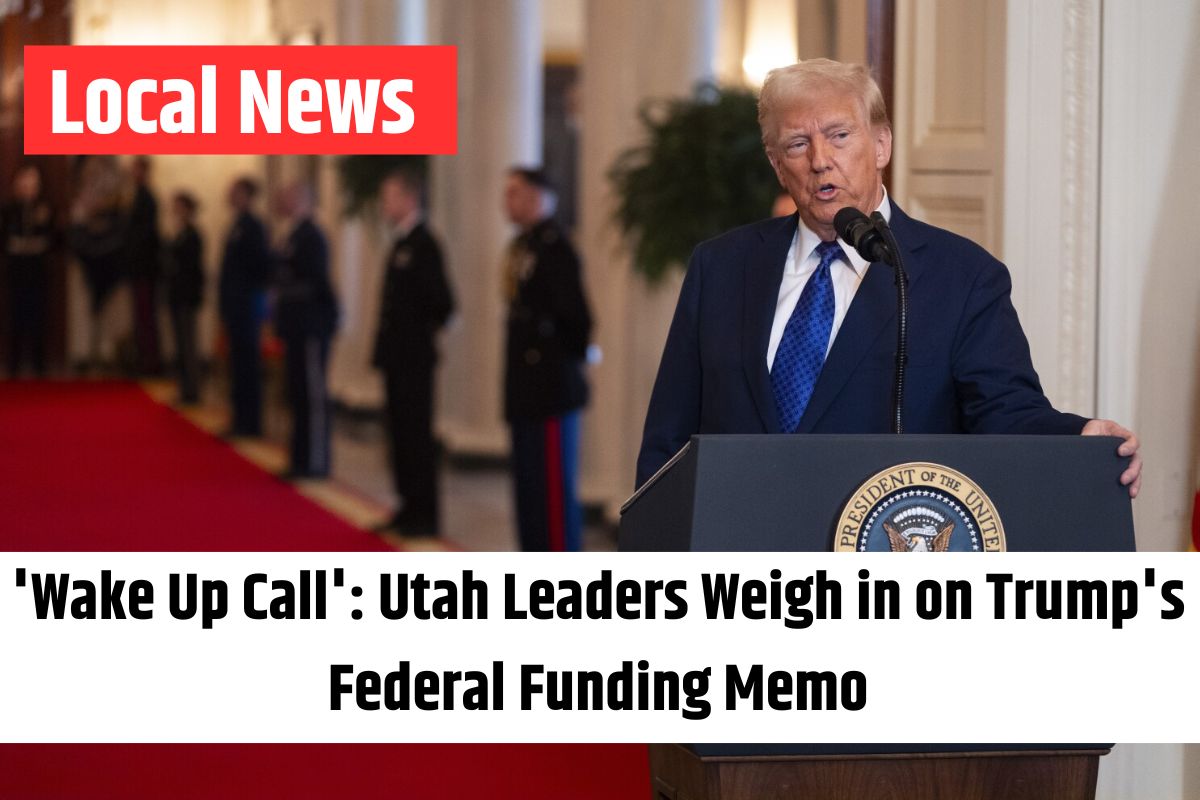
Utah’s top lawmakers expressed relief on Wednesday after the White House reversed a temporary freeze on federal funding and grants. The original freeze, which had been imposed by the White House Office of Management and Budget on Monday, had caused considerable concern in Utah, a state heavily reliant on federal funding for its budget.
The freeze was briefly halted by a judge on Tuesday, who issued a temporary block until a court hearing could take place next week. By Wednesday afternoon, the White House rescinded the memo, with Press Secretary Karoline Leavitt clarifying that President Trump’s executive orders regarding federal spending would remain in full effect, including reviews of expenditures not aligned with the president’s agenda.
The initial freeze had sparked confusion, particularly among those who rely on federal programs like Medicaid. The freeze threatened to disrupt the national healthcare system and left many low-income individuals uncertain about their healthcare coverage.
Also Read – Trump’s Executive Order Shocks Political Leaders on Utah’s Capitol Hill
A Wake-Up Call for Utah’s Budgeting Process
In a meeting with reporters, Utah lawmakers acknowledged the uncertainty and confusion the freeze had caused, but also emphasized the lessons learned from the situation. “It was a challenging day,” said Sen. Jerry Stevenson (R-Layton), referring to the day spent trying to navigate the potential implications of the freeze. “We’re relieved that the process has returned to normal, but it definitely got our attention.”
Senate President Stuart Adams (R-Layton) agreed, describing the freeze as a “wake-up call” for the state. Utah, like many states, relies heavily on federal funding for key services, including education and Medicaid. Without that support, the state would struggle to maintain these services at the current level. “It was a scary thought,” Adams admitted, recognizing the vital role that federal dollars play in state operations. “We don’t have the capacity to backfill a $5 billion deficit if the federal government pulls funding.”
The Impact on Medicaid and Education
Medicaid, in particular, was a major concern for lawmakers, who emphasized the critical need for continued federal support. Many Utahns depend on the Medicaid program for health coverage, and any disruption to that funding would leave thousands without the healthcare services they rely on.
Adams made it clear that while the state could plan for potential changes in federal funding, replacing Medicaid would be a daunting task. “If the federal government stops funding Medicaid, we just don’t have the resources to replace it,” he said. “We are dependent on that funding, and it’s difficult to say that out loud, but it’s the truth.”
Senate Minority Leader Luz Escamilla (D-Salt Lake City) echoed those concerns, noting that the federal government’s handling of the situation had been poorly communicated. “Announcing a freeze like this without fully understanding the consequences is almost cruel,” she said, urging greater transparency and consideration in such decisions.
Also Read – Seclusion in Utah Schools: How Many Kids Are Affected?
A Call for Fiscal Responsibility and State Preparation
Looking ahead, lawmakers agreed that the state needs to be more proactive in preparing for potential future disruptions in federal funding. Senate Majority Leader Kirk Cullimore (R-Draper) emphasized that Utah’s state leadership must take steps now to ensure the state’s financial future is secure. “If we’re not preparing for the future and what these potential changes could mean, we’re being irresponsible,” he said, pointing out that Utah has been ahead of the curve in planning for such challenges.
As Social Security and other entitlement programs face fiscal challenges in the coming years, state leaders will need to think strategically about how to safeguard vital services, particularly those that depend on federal funding. Cullimore stressed that Utah has taken steps to prepare, but more work is needed to ensure the state can weather any changes at the federal level.
In the meantime, lawmakers are encouraging Utahns to stay engaged with their federal representatives and senators, making their voices heard on issues that directly impact the state’s future.







